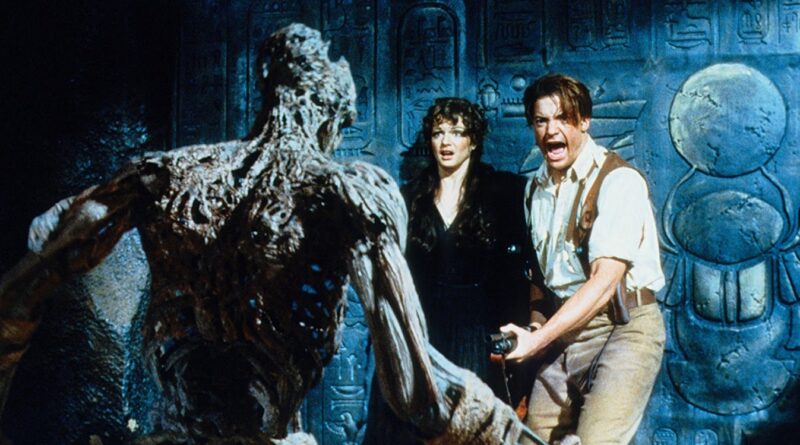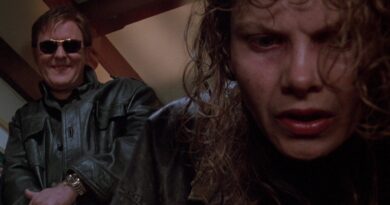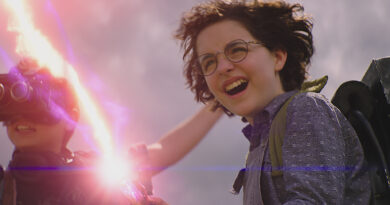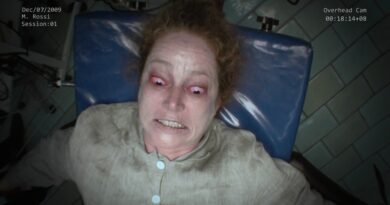The Mummy (1999)
Many films have been titled The Mummy over the years, but the 1999 version will likely stand taller and be remembered for years to come. This isn’t because it’s any kind of masterpiece, but simply because it’s such gosh-darn fun. Even with the innate horror of decayed resurrected mummies (and their tendency to regenerate themselves by sucking fluids and organs from living victims), it’s at heart an Indiana Jones-like action/adventure spectacle – full of stunts and special effects, the plot and character development cheerfully drawn as broadly as the Saturday matinee serials of the 1930s and ‘40s. Straightforward and uncynical, it has very clear heroes and villains, damsels in distress, searches for buried treasure, and a desperate attempt to undo an Ancient Egyptian curse.
In much the same way as the Indiana Jones films, The Mummy is told with a great deal of humor. Some of the jokes are clever. Most are simply lame, and they’re told far more often than they probably need to be. Sometimes the humor devolves into pure silliness, with a select few lines so embarrassingly amateurish that they sound as if written by the likes of Ed Wood – all passion, none of the talent. To the credit of writer/director Stephen Sommers, who returns to form after 1998’s terrible Deep Rising, this is the kind of film that allows for a certain level of cheesiness. Audiences never went into serials with any expectation of cinematic mastery; they merely wanted to be entertained. This movie offers entertainment in spades.
The plot is loosely drawn, I’m sorry to say, from the 1932 film of the same name, with elements, I’m far more sorry to say, from its 1940 sequel The Mummy’s Hand; an ancient Egyptian priest, who was mummified alive and cursed thousands of years ago for having an affair with the Pharaoh’s mistress, is revived in 1926 via an incantation in a book of hieroglyphics. This sets into motion his plan to (1) regenerate himself, (2) bring his love back from the dead, and (3) invincibly take over the world. Taking the reins from a long line of actors as the title character – Boris Karloff, Tom Tyler, Lon Chaney Jr., Christopher Lee, Dickie Owen, Eddie Powell – is Arnold Vosloo. When not an impeccable computer-generated corpse, he successfully conveys a deliciously theatrical level of evil, the kind we remember fondly from the villains of Old Hollywood.
The only ones who can defeat the Mummy, here named Imhotep, are the usual rip-roaring action/adventure typecasts, the term used here in the best possible sense. We have: Rugged soldier and adventurer Rick O’Connell (Brendan Fraser); the highly intelligent but slightly accident-prone Egyptologist Evelyn (Rachel Weisz), who of course will not only become Rick’s love interest but also the female sidekick that needs rescuing, being chosen by Imhotep as his human sacrifice; and Evelyn’s irresponsible and bumbling brother Jonathan (John Hannah), the film’s comedy relief. We also have Kevin J. O’Connor as Rick’s scheming and cowardly former brother in arms, who becomes Imhotep’s minion, and Oded Fehr as the leader of a warrior society dedicated to keeping Imhotep at bay.
The film is more reliant on computer graphics than makeup effects, which isn’t a criticism so much as an observation of the times we live in. While perhaps not as traditional, there’s no denying that computers allow for some visually-stunning sequences. Some examples: The swarms of flesh-eating scarab beetles that pop up out of a mound of sand; Imhotep’s undead army of priests getting into sword fights with Rick during the final act; the scene where Imhotep uses his powers to raise a gigantic wall of sand, which chases Rick and his pals as they pilot a biplane; the moment when Imhotep’s humongous face forms within the wall of sand and opens its mouth wide, threatening to swallow the biplane whole.
You’d be absolutely right to think that the film is all style and no substance. But that pretty much goes without saying, and the simple truth is that no version of The Mummy is known for depth, complexity, or profound insights. The distinguishing factor of this film is genre; rather than pure horror, which defined most previous Mummy movies, it aims for fun and excitement. It’s a romanticized vision – albeit, one that isn’t quite as successful as the visions of the Indiana Jones films. What did they have that’s missing from The Mummy? The dialogue was certainly a lot better. Even with a sense of humor and an intentional awareness of matinee-serial tropes, the words spoken in the Indiana Jones films were more thought-out, more refined. But let’s not be nitpicky. The Mummy is terrific entertainment and well worth your time.




